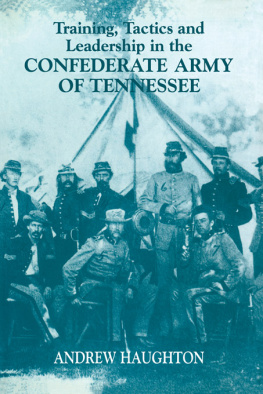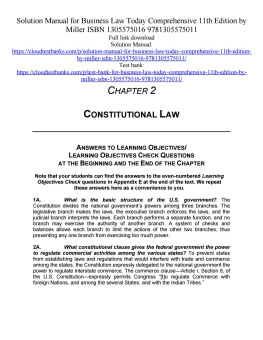LEADERSHIP IN GOVERNMENT: STUDY OF THE AUSTRALIAN PUBLIC SERVICE
For our parents, Elfrieda and George Kakabadse, and Mila Lisa and Dmitar Korac, with deep love and respect.
Leadership in Government: Study of the Australian Public Service
ANDREW KORAC-KAKABADSE
and
NADA KORAC-KAKABADSE
International Management Development Centre
Cranfield University
Cranfield School of Management
First published 1998 by Ashgate Publishing
Reissued 2018 by Routledge
2 Park Square, Milton Park, Abingdon, Oxon, OX14 4RN
711 Third Avenue, New York, NY 10017, USA
Routledge is an imprint of the Taylor & Francis Group, an informa business
Copyright A. Korac-Kakabadse and N. Korac-Kakabadse 1998
All rights reserved. No part of this book may be reprinted or reproduced or utilised in any form or by any electronic, mechanical, or other means, now known or hereafter invented, including photocopying and recording, or in any information storage or retrieval system, without permission in writing from the publishers.
Notice:
Product or corporate names may be trademarks or registered trademarks, and are used only for identification and explanation without intent to infringe.
Publishers Note
The publisher has gone to great lengths to ensure the quality of this reprint but points out that some imperfections in the original copies may be apparent.
Disclaimer
The publisher has made every effort to trace copyright holders and welcomes correspondence from those they have been unable to contact.
A Library of Congress record exists under LC control number: 97077552
ISBN 13: 978-1-138-33497-7 (hbk)
ISBN 13: 978-0-429-44407-4 (ebk)
Contents
The study reported in this book formed the basis of a report submitted to the Australian Commonwealth Government.
The study was not commissioned by the Australian Government and hence was a totally independent piece of work. However, the study received full support and cooperation from the civil servants in Canberra. The completed report was submitted to Dr Peter Shergold, Public Service Commissioner, Public Service Commission and Merit Protection Board, Canberra, Australia, May 1996.
We would like to acknowledge all those in Canberra who helped make this Study possible, especially, Dennis Ives, former Public Service Commissioner, Dr Peter Shergold, Jenni Colwill, Edward Attridge, Brian Joyce, Jenny Cahill and Derek Volker, former Secretary of the Department of Employment, Education and Training, and all those civil servants who gave their time to take part in this survey or who assisted in the process of administration, data collection and distribution of feedback once the survey was complete. Nada and I are deeply indebted to you.
At the Cranfield end, we also wish to thank Andrew Myers and Leo Murray for their support, help and guidance throughout the project. Thanks also to Dorothy Rogers, Jenny Ford and Alex Britnell for their patience and perseverence in typing draft after draft.
We thank you for all the care and assistance you gave to make this project possible.
Andrew Korac-Kakabadse
Nada Korac-Kakabadse
Leadership is one of those few topics of management and organization behaviour that has a history far greater than the subject matter heading within which it is housed. The writings of Confucius, Aristotle and Plato emphasize the transformational interpretation of leadership, highlighting the visionary or superhero nature of the great man or woman. From the ancient philosophers, to more modem great philosophers as Hobbes and Nietzsche, to current scholars, transformational leadership has dominated thinking. Further through postulation and/or enquiry, the search has been on to identify those elements that lead to super human drive and extraordinary impact, in the hope that others can replicate or be trained in such attributes. Historically, it is assumed that transformational leaders make the big strides and break out of existing moulds and on to new worlds.
With the onset of large, structured work organizations needing to be responsive to market and/or community/political influence, leadership has equally been viewed from the perspective of action and making major strides forward, and from being strongly influenced by context. Different circumstances in different organizational settings provide parameters around which the leadership contribution is actioned. Effectiveness of leadership would be determined by being able to recognize appropriateness of action and influence relevant to the dynamics of that context. Hence, in any analysis of leadership, when taking into account context, attention needs to be paid to understanding followership and culture of organization. Unless the requirements of colleagues and subordinates are appreciated, any leadership effort could be ineffective or even counterproductive, as the followers would not have given their tacit permission for their leaders to act. Add the modern day phenomena of speed of information, the rise of multi national and multi cultural organizations, the fact that revenue streams and key client accounts can be enhanced or damaged by subordinates irrespective of the behaviour of the boss, then contextual considerations can be of paramount importance.
With these thoughts in mind, this book reports the results of surveys conducted within the Australian Public Service (APS), in private sector organizations spanning 12 industries, and in the National Health Service Trusts (UK).
The theoretical framework adopted in these studies attempts to capture the reality of demands made on managers and their response and contribution to improvements and changes of their circumstances. In effect, context and person are taken into account. Further, from a developmental perspective, exploration is undertaken as to whether managers can be grown to be effective leaders, sensitively balancing their wishes with the dynamics of the demands they face in their situation. Taken into account are the individual managers attitudes, values and behaviour, organizational circumstances and the feelings and views of others within the organization. Such analysis provides insights as to current leadership practice and its impact on present day dynamics. In turn, such enquiry highlights pathways for improvement that would be contextually relevant and useful.
As it is assumed for this text that leadership in todays work organizations requires examination of attributes of individuals, namely behaviour, attitudes or deeper personality dimensions and job/role related dynamics or pressures which would take account of context, the concept of discretion provides for the conceptual bridge between individual behaviours and role demands. The discretionary element of role refers to the choices the role incumbent needs to make in order to provide shape and identity to his/her role and that part of the organization for which the person is accountable. The contrast to the discretionary element of role is the prescriptive side, namely the structured part, which is predetermined and which focuses and restricts the individuals behaviour. In effect, the prescriptive part of a managers job is that part over which the manager has little choice, other than to undertake the duties that are required of him/her.













